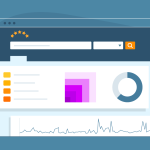An IP address gives a network-connected device an identity on the internet and helps it access data. However, it doesn’t reveal a user’s geographic location.
Cybercriminals can use hacked IP addresses to download illegal content including child pornography, terrorism, and more. Businesses can also gain valuable information by using an IP lookup tool based on their customers or prospects’ locations.
Geolocation
When you use a computer or device connected to the Internet, your data sends with it an address called an IP address. This is the Internet’s equivalent of a physical address.
It’s possible to map these addresses to a geographic location using geolocation services. These services mine data from a wide range of sources, including regional IP address registries, user-entered inquiries on websites, and estimates from networks based on traffic routes.
The results aren’t always accurate, but it can be used to give a website an approximate idea of where its visitors live or work. This can help a website tailor its content to that audience or serve up targeted advertisements.
Although geolocation has many useful applications, it’s important for businesses to think about the privacy concerns that may arise. Especially when they’re collecting personal information that can be used to identify a person, like their IP address and geographical location. This is called fingerprinting or digital footprinting and can lead to a number of issues, including identity theft and safety risks.
Internet Service Providers
IP address geolocation, a service that can uncover a person’s online location using their IP address, is a valuable tool for many types of businesses. It allows them to serve up locally-relevant content and ads, help prevent fraud and abuse, and much more.
Your Internet Service Provider assigns you an IP address that is used to route all of your online activity. That means that someone can look up your IP address to find out where you’re located, but it won’t reveal your home or office address.
However, if you’re being tracked by hackers or other malicious actors, then it’s possible that your ISP may be able to pinpoint your location. This is because the databases that contain your IP address typically contain information about you, including what type of device you own and when it was last used. The information in these databases can also be combined with data about the routing paths taken by your device’s packets to get a more precise picture of your location.
Public Databases
IP-based geolocation databases, such as IP2Location and IPData, offer useful information about the geographic location of Internet-connected devices. These databases provide clues such as the country, region (city), latitude and longitude of an IP address’s ‘origin’.
The database will also indicate the Internet service provider associated with that IP address, as well as the domain name and other relevant details. However, it’s important to note that this information is not always accurate, as ISPs shuffle IP addresses around frequently.
While IP addresses can’t — and should not — give voyeurs a peek into your bedroom, they do play an essential role in the functioning of the Internet. Knowing what these numbers mean can help you navigate the web more safely and securely. The good news is that tracking an IP address is a relatively simple process. Here’s how. You can start by tracing an IP address using Command Prompt, which is a built-in tool in Windows operating systems.
Private Databases
Your IP address, which is basically like a mailing address for the Internet, is assigned to you by your ISP. It allows data to reach you, but it also reveals your location on the world map to anyone who can look up that information.
Private IP databases can reveal a city, zip code, and country, but they do not provide specific street addresses as they would need a bulk amount of data to determine that level of accuracy. This type of information is used by law enforcement agencies and thriving businesses to protect themselves from cybercriminals, phishing scams, and more.
In most cases, you can be traced back to your location when you click on an ad, fill out an online form, or participate in an online forum. But that doesn’t mean you’re necessarily in danger if someone has your IP address because most people only connect to the Internet from their home, not in public places.






